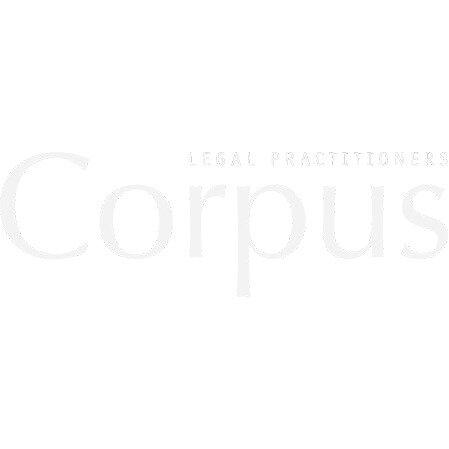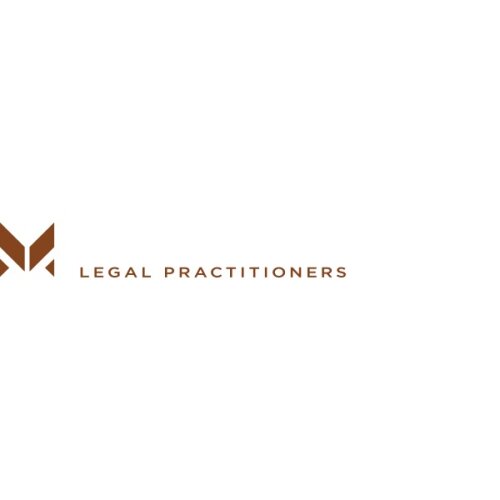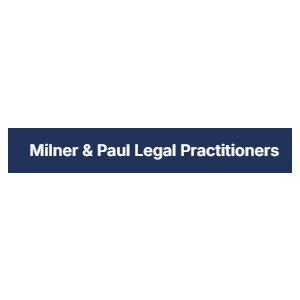Best Nonprofit & Charitable Organizations Lawyers in Lusaka
Share your needs with us, get contacted by law firms.
Free. Takes 2 min.
List of the best lawyers in Lusaka, Zambia
About Nonprofit & Charitable Organizations Law in Lusaka, Zambia
Nonprofit and charitable organizations play a pivotal role in Lusaka, Zambia, by tackling social issues, providing services, and supporting community development. These organizations operate primarily on altruistic goals rather than profit-making motives, channeling resources towards public benefit. In Zambia, the legal framework governing nonprofits includes registration procedures, compliance with regulatory standards, and guidelines for their operations and management. Organizations must align with the Societies Act, the Companies Act if they are incorporated, as well as specific regulations tied to their operational sectors.
Why You May Need a Lawyer
Legal guidance may become essential for nonprofit and charitable organizations in various situations. Here are some common reasons why seeking legal advice might be necessary:
- Registration and Formation: Navigating the registration process to ensure compliance with the Societies Act or the Companies Act for incorporated entities.
- Corporate Governance: Establishing a legal structure that adheres to governance standards and developing bylaws that protect organizational interests.
- Tax Exemptions: Applying for tax-exempt status and understanding tax obligations can be complex, requiring professional guidance.
- Compliance Issues: Addressing issues related to regulatory compliance with local laws and sector-specific regulations.
- Contract Law: Drafting and reviewing contracts, such as employment agreements and sponsorship deals.
- Fundraising Regulations: Understanding the legal implications involved in fundraising activities and grants.
- Dispute Resolution: Handling internal disputes, conflicts among stakeholders, or issues with third parties effectively and legally.
- Asset Management: Legally managing assets and resources to ensure alignment with the organization’s charitable purposes.
Local Laws Overview
The local laws in Lusaka, Zambia, pertinent to nonprofit and charitable organizations include several key aspects that ensure these entities operate within a legal framework. Key legislations and regulations include:
- Societies Act: Governs the registration and administrative compliance requirements for ngos and non-commercial societies.
- Companies Act (as amended): Relevant for nonprofits choosing to incorporate as companies limited by guarantee.
- Income Tax Act: Addresses the conditions and processes for achieving tax-exempt status and handling financial matters legally.
- Labour Laws: Mandates dealing with employment relations, volunteers, and human resource management within organizations.
- Sector-Specific Regulations: Some non-profits operate within sectors like health or education, requiring adherence to additional sector regulations.
Frequently Asked Questions
What is required to register a nonprofit organization in Zambia?
In Zambia, nonprofits need to register with the Registrar of Societies or as a company limited by guarantee through the Patents and Companies Registration Agency (PACRA), depending on their structure.
What are the tax obligations for a nonprofit in Lusaka?
Nonprofits may apply for tax exemptions but must still fulfill obligations such as submitting annual financial returns and adhering to tax laws regarding employee remunerations.
Can a nonprofit generate profit?
Yes, but any profits or surplus must be reinvested into the organization to further its objectives and cannot be distributed to members or stakeholders.
Do nonprofits in Zambia need bylaws?
Yes, bylaws provide a governance framework detailing operational rules, member roles, and management of the nonprofit.
What are hybrid organizations?
Hybrid organizations blend aspects of for-profit and nonprofit entities to pursue charitable goals while engaging in commercial activities.
How do I ensure compliance with employment laws?
Nonprofits must adhere to Zambia's employment laws by ensuring fair practices, wages, and working conditions for employees and volunteers.
Is a local presence necessary for registering an NGO?
While a local presence isn't strictly necessary, having a local representative or office may facilitate operations and compliance with local requirements.
What steps are involved in merging two nonprofits?
A merger involves legal groundwork, restructuring, transfer of assets, and may require approval from regulatory bodies or members.
How should a nonprofit handle donations legally?
Nonprofits should have systems for tracking donations, providing receipts, and ensuring funds are used in line with donor specifications and legal standards.
What are the penalties for non-compliance with nonprofit regulations?
Penalties can range from fines and revocation of registration to legal actions against the organization and its officers.
Additional Resources
Here are some resources and organizations you might find helpful when seeking legal advice on nonprofit and charitable organizations in Lusaka, Zambia:
- Zambia Revenue Authority (ZRA): Offers guidance on tax obligations and exemptions.
- Patents and Companies Registration Agency (PACRA): Facilitates company registrations and assists with corporate compliance.
- Registrar of Societies: Assists with registration, compliance, and operational guidelines for societies.
- Zambia Institute of Chartered Accountants (ZICA): Provides resources on financial management and accountability for nonprofits.
- Council of Non-Governmental Organizations of Zambia (CNGO): Supports NGOs, offering advice and advocacy on sectoral issues.
Next Steps
If you need legal assistance in the field of nonprofit and charitable organizations, consider the following steps:
- Identify specific legal needs or challenges your organization faces.
- Consult with a legal professional or law firm with expertise in nonprofit law.
- Gather all necessary documentation related to your organization's formation, finances, and past compliance efforts.
- Schedule a consultation to discuss your situation and seek tailored advice.
- Engage with local resources and networks to stay informed about legal updates and best practices for nonprofit management.
Taking proactive measures early will help safeguard your organization against potential legal challenges and promote its stability and effectiveness in achieving charitable objectives.
Lawzana helps you find the best lawyers and law firms in Lusaka through a curated and pre-screened list of qualified legal professionals. Our platform offers rankings and detailed profiles of attorneys and law firms, allowing you to compare based on practice areas, including Nonprofit & Charitable Organizations, experience, and client feedback.
Each profile includes a description of the firm's areas of practice, client reviews, team members and partners, year of establishment, spoken languages, office locations, contact information, social media presence, and any published articles or resources. Most firms on our platform speak English and are experienced in both local and international legal matters.
Get a quote from top-rated law firms in Lusaka, Zambia — quickly, securely, and without unnecessary hassle.
Disclaimer:
The information provided on this page is for general informational purposes only and does not constitute legal advice. While we strive to ensure the accuracy and relevance of the content, legal information may change over time, and interpretations of the law can vary. You should always consult with a qualified legal professional for advice specific to your situation.
We disclaim all liability for actions taken or not taken based on the content of this page. If you believe any information is incorrect or outdated, please contact us, and we will review and update it where appropriate.

















